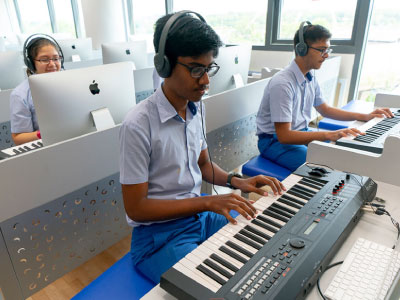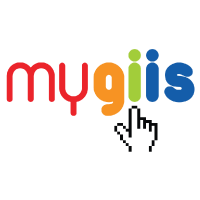Olympiads are academic evaluations to boost student's enthusiasm and competence in diverse subjects. They include hard questions that promote analytical and logical thinking abilities. Olympiads recognise and develop young potential by offering an opportunity for participants to demonstrate their academic ability.
Olympiad tests have their origins in ancient Greece when the Olympic Games provided an opportunity for sportsmen to demonstrate their athletic abilities. In recent times, the idea has expanded to include educational contests. The Olympiad tests have grown in popularity as renowned competitions that motivate academic performance, discover outstanding individuals, and foster worldwide educational collaboration.
Olympiad Exams seek to encourage students' excellence in areas such as mathematics, physics, and languages. Its objectives include discovering and developing potential, boosting problem-solving and analytical abilities, encouraging global cooperation, and offering recognition and chances for participants to perform academically on an international scale.
Types of Olympiad Exams
Olympiad tests cover multiple subjects to provide students with opportunities to showcase their abilities and knowledge in specialised areas. The exams cover topics like mathematics, physics, computer science, and linguistics. Each Olympiad test checks a distinctive skill set and offers chances for students to exhibit their knowledge and love for learning.
Here is a brief overview of the different subject-focused Olympiads tests that check the academic abilities of students in International schools in Tokyo and across the world:
1. Mathematics Olympiad
It is a prominent exam that brings together learners from across the world to demonstrate their mathematical aptitude. Students tackle complex problems in different disciplines like algebra, geometry and combinations. The Mathematics Olympiad promotes academic brilliance and stimulates creativity, tenacity, and teamwork among participants.
2. Science Olympiad
The International Science Olympiad checks student's expertise in different fields of science. With participation in experiments and theoretical tests, students exhibit their knowledge in subjects like biology, physics, chemistry and earth sciences. This Olympiad promotes innovative thinking, experimenting, and collaboration. It develops a greater understanding of science and motivates future researchers and scientists.
3. English Olympiad
The English Olympiad measures students' ability in the English language and literature. Participants exhibit their competence in grammar, reading comprehension, vocabulary and ability to interpret literary texts. The English Olympiad promotes logical thinking and a passion for literature and language. It uses challenges like essay writing, text interpretation, and linguistic nuances interpretation.
4. Other Subject-Specific Olympiads
In addition to Mathematics, Science, and English, there are several Olympiads in varied fields of study. They cover subjects like computer science, geography, astronomy, and economics. Every Olympiad provides participants with challenges and opportunities to dive further into their chosen subjects. It cultivates curiosity, competence, and academic success in specialised fields.
Advantages of Participating in Olympiad Exams
Participating in Olympiad tests encourages intellectual growth, and problem-solving abilities and enhances academic performance. The Olympiad also offers learners worldwide recognition and new learning opportunities. Listed below are the top Advantages of Olympiad Exams that students can gain by participating in these exams.
1. Academic Benefits
1. Enhanced problem-solving skills:
Students strengthen their capacity for problem-solving by delivering challenging tasks in a range of topics during Olympiads. They learn how to analyse problems, think critically, and devise novel solutions. This promotes the development of adaptation and resilience skills in students. These are critical abilities useful for academics, professional, and everyday life challenges.
2. Deepened subject knowledge:
Participation in Olympiad tests leads to enhanced topic knowledge. Students solve challenging questions and investigate advanced concepts in their subjects of interest. Participants obtain a thorough comprehension of the topic at hand with thorough research and exposure to a broad range of topics. It contributes greatly to improving their academic skill and expertise.
3. Exposure to advanced concepts:
By taking part in Olympiads, students get exposure to subjects that fall beyond their standard curriculum. By solving difficult challenges and exploring sophisticated concepts, participants broaden their cognitive horizons. They get an improved understanding of intricate topics to open their pathways for academic progress and creativity.
2. Personal development
1. Improved critical thinking:
Competing in the International Mathematical Olympiad improves critical thinking abilities. Participants face complex challenges that need critical thinking and creative solutions. This method teaches students skills to analyse given information, discover patterns, and make informed decisions. It promotes the ability to think logically and solve problems in an array of academic and real-world situations.
2. Increased self-confidence:
Engaging in Olympiad tests enhances student's self-confidence as they face challenging projects and solve challenges. Success in these events affirms their ability, establishing a sense of success and confidence in their abilities. This enhanced self-assurance goes beyond academics, allowing learners to pursue their ambitions with dedication and persistence.
3. Cultivation of a competitive spirit:
When students participate in Olympiad examinations they foster a competitive attitude. The ambition to strive and exceed peers drives rigorous preparation and determination to succeed. This healthy rivalry promotes drive, resilience, and a desire for constant growth. It equips learners to meet obstacles with courage and resilience in all aspects of life.
3. Recognition and opportunities
1. Scholarships and prizes:
Being active in Olympiad exams opens up chances to receive scholarships and awards. Exceptional achievement in these events is frequently recognized by educational institutions, authorities, or business organisations. They provide cash incentives, scholarships, and other distinguished prizes. These incentives acknowledge students' academic accomplishments and continue their growth streak.
2. College admissions advantages:
Participation in Olympiad tests provides considerable advantages during college admissions. Outstanding performance sets applicants apart from other applicants by demonstrating academic proficiency. It highlights their dedication to learning beyond the traditional curriculum. Olympiad participation is positively viewed by admissions committees as proof of a student's intellectual curiosity.
3. Networking with like-minded individuals:
Participating in Olympiads helps students connect with other learners who share an enthusiasm for academic exploration. Engaging with peers from various backgrounds supports collaboration, and idea exchange, and builds lasting friendships. It results in a supportive group of motivated students driven by a shared objective of knowledge and accomplishment.
Eligibility Criteria for Olympiad Exams
The requirements for Olympiads differ based on the governing body and the competition. In general, children from elementary to secondary school are eligible to take part. Some Olympiads may impose additional conditions, like qualifying exams, age limitations, or defined academic accomplishments. Below is a breakdown of the Eligibility Criteria for Olympiad:
● Age criteria:
Olympiad exam age ranges usually span from primary through secondary school, with every competition having its own set of age requirements. Organisers may impose age restrictions to facilitate fair competition and meet children's developmental phases. Eligibility standards sometimes include age limits or grades required for individuals to qualify for admission.
● Educational Qualification:
The educational requirements to appear in Olympiad tests differ based on the competition and its organising body. Some Olympiad exams can establish extra regulations on the participants. They can include prerequisites for specific courses or distinctive accomplishments in school. It guarantees that the participants have the essential knowledge and abilities to compete in the assessments.
● National and international eligibility variations:
The eligibility criteria for Olympiad tests differ across national and international stages. National Olympiads usually admit students from just a single nation, frequently with age or grade-level requirements. International Olympiads, on the contrary, invite competitors from across the world, with eligibility based on national-level results or acceptance through multiple preliminary rounds.
List Of Some School Level Olympiad Exams Conducted In Tokyo
Several school-level Olympiad tests are held in Tokyo every year. They allow students to demonstrate their academic abilities and participate at a regional and national level. Below are the top Olympiads conducted for Tokyo high school students.
● International Mathematical Olympiad (IMO):
Every year, IMO challenges competitors with rigorous mathematical challenges. It encourages cooperation, solving problems, and academic achievement. It draws talented students from all over the world to compete and recognize achievement in mathematics.
● International Science Olympiad (ISO):
This prestigious exam tests students' scientific knowledge and abilities. The International Science Olympiad evaluates participants using questions and experiments from a variety of fields. It supports scientific inquiry, partnership, and innovation among students.
● International English Olympiad (IEO):
It is an evaluation medium to assess student's English skills by checking their grammar, vocabulary, and writing abilities. It allows them to exhibit their English language and literature interpretation skills. Learners contend for recognition and rewards by the committee.
● International Astronomy and Astrophysics Olympiad (IAAO):
The IAAO assesses students' knowledge of space science. Participants take part in theoretical and observational tasks, exhibiting their understanding of space events and scientific concepts including astronomy and astrophysics. Students can show their knowledge of celestial phenomena.
● Tokyo Computer Science Olympiad:
The Tokyo Computer Science Olympiad is a recognized competition for students interested in the field of computer science. Participants are required to face challenges in coding, algorithms, databases, and more by offering them a unique platform to showcase their skills.
● Tokyo Junior Robotics Olympiad:
The Tokyo Junior Robotics Olympiad challenges participants to demonstrate their robotics and engineering abilities. This Tokyo-based event brings together aspiring innovators to create, assemble, and program robots that perform certain tasks, developing creativity, problem-solving ability, and collaboration among participants.
Olympiad Exam Structure and Format
The structure and style of Olympiad exams vary according to the topic and organising agency. They assess competitors' comprehension, abilities to solve problems, and creative thinking. Understanding exam format is critical for designing successful Subject-specific Olympiad Strategies.
● Examination pattern:
Olympiad examinations often ask multiple-choice, short-answer, and essay questions. They intended to measure participants' comprehension, analytical abilities and reasoning skills. Students seeking to excel in these tests should become familiar with the examination pattern.
● Syllabus coverage:
The syllabus for Olympiad exams includes diverse concepts and topics. Participants should have an in-depth knowledge of both fundamental principles and advanced subjects relevant to the test. Curriculum frequently coincides with national or international academic norms, ensuring that participants are fully prepared.
● Marking system:
The marking strategy for Olympiad examinations changes depending on the exam and subject. Marks may be granted for accurate answers, with penalties for wrong answers in some situations. Partially right or imaginative responses may also receive partial credit or extra points. Understanding the marking structure is essential for gaining an optimised score.
Preparation Strategies for Olympiad Exams
Effective Olympiad preparation necessitates a planned strategy. It includes extensive research, problem-solving practice, and time management tactics. Students should optimise study habits, improve conceptual comprehension, and refine their problem-solving skills. Here are some proven Preparation Strategies for Olympiads for impressive performance.
1. Early preparation tips
1. Starting early and consistent practice:
Early planning and constant practice are critical methods for succeeding in Olympiad tests. Early preparation provides adequate time to properly study the comprehensive syllabus. Also, frequent practice sharpens problem-solving abilities and strengthens conceptual knowledge. This strategy builds confidence and proficiency in students.
2. Creating a study schedule:
Establishing a study regimen is crucial for successful Olympiad exam preparation. A well-organised plan makes time for exploring various topics, developing abilities to solve problems, and revisiting previous content. Students can handle their time more effectively and prepare for examinations by defining clear study goals and following an organised plan.
2. Subject-specific strategies
1. Mathematics:
In mathematics Olympiads, grasping basic concepts is essential. Concentrate on comprehending the fundamental ideas instead of memorising formulas. Solve a range of difficult problems from previous papers and other sources to improve your problem-solving abilities.
2. Science:
For science Olympiads, participate in hands-on activities and practical applications of scientific ideas. Investigate multidisciplinary linkages between many disciplines of the subject. To excel at science Olympiads, become familiar with scientific vocabulary and stay up to date on recent achievements.
3. English:
The International English Olympiad emphasises language proficiency. Analyse a variety of literary texts to grasp different writing styles. Improve vocabulary and grammatical skills with tailored activities. Practice writing essays to successfully examine and comprehend literary works.
How To Participate In The Olympiad Exam
Participating in an Olympiad test usually entails multiple processes. Here is a brief breakdown of the steps involved in registering for an Olympiad test:
● Choose the Olympiad: Students should start by picking a preferred Olympiad test based on their topics of interest after assessing the different Olympiad tests available.
● Check Eligibility: Ensure that the student satisfies the age, grade, and other participation criteria specified by the Olympiad’s conducting organisation.
● Find Registration Details: Next, collect information regarding registration deadlines, fees, and processes from the Olympiad’s official website or school administration.
● Fill Registration Form: Complete the Olympiad registration form correctly by including all personal and academic information without any error.
● Submit Necessary Documents: Collect and submit all relevant documentation such as identity, school admission and academic qualification paperwork for verification.
● Pay Registration Fee: Make payment of any fees, if charged for participation in the Olympiad through a specified payment method.
● Receive Confirmation: Await registration confirmation of Olympiad registration. It will include payment receipts and exam information.
After completion of the above steps, students are successfully registered to appear in an Olympiad exam and should start their exam preparation without delay.
Conclusion
Olympiad exams give a platform for learners to demonstrate their abilities in multiple subjects. Understanding qualifying requirements and implementing appropriate preparation tactics are critical to success. Participation broadens knowledge and develops critical skills useful in academic and professional activities.
FAQs
Are Olympiads Difficult?
Olympiads can prove difficult owing to their demanding curriculum. Success in these tests requires commitment, sound foundational understanding and careful planning. But, with the right guidance, preparation, and determination, learners overcome these obstacles to succeed.
Are Olympiads Good For Kids?
Yes, Olympiads are ideal for students to promote intellectual development, critical thinking abilities, and a desire to win. Participation fosters academic success, promotes multidisciplinary education, and allows for acknowledgement and personal development.
Why Are Olympiads Important For Kids?
Olympiads benefit children by encouraging academic success, stimulating intellectual curiosity, and developing critical thinking abilities. They allow students to push themselves, highlight their abilities, and achieve acclaim.
Which Country Has Won The Most Math Olympiad?
China has long dominated the IMO, consistently securing first place and winning the most gold medals. Other countries which have performed well include Russia, the United States of America, and Hungary.
Which Olympiad Exam Is Best?
Individual interests, talents, and career goals influence which Olympiad test is best. Mathematics, science, English, and various subject-related Olympiads all provide unique opportunities for students to flourish and demonstrate their abilities.
Which Olympiad Is Free Of Cost?
Several Olympiad tests are free of cost and organised by educational facilities, government, or non-profit groups. Some examples are national-level Olympiads conducted by school boards to promote academic achievement.




















































